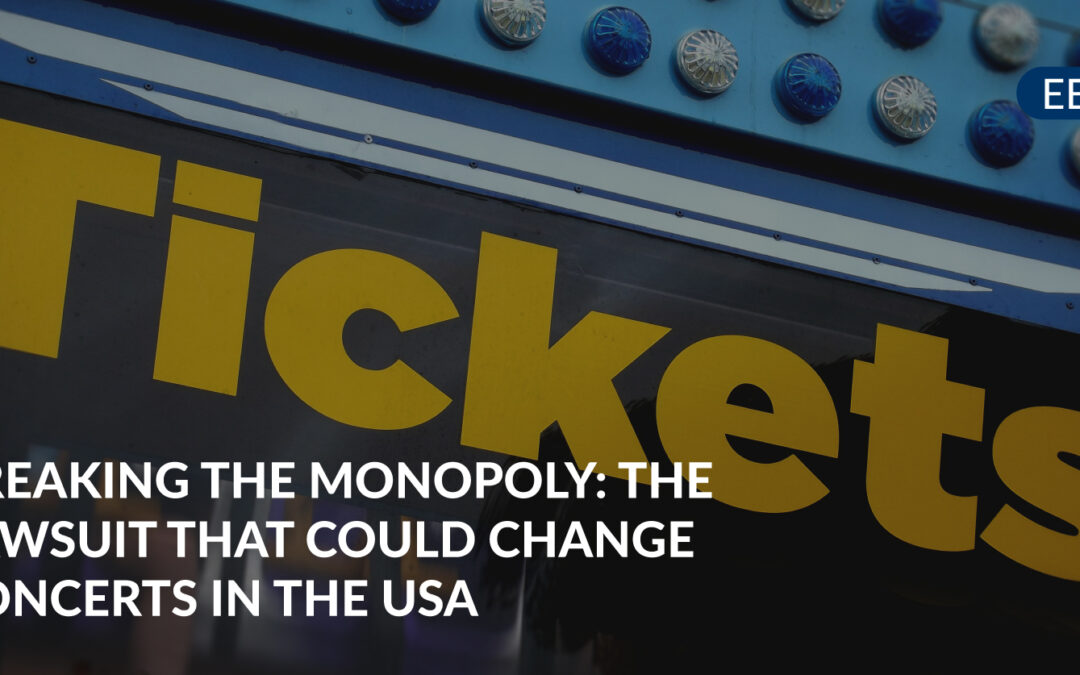Abuse of dominant position, in the context of antitrust and competition law, refers to the improper and anti-competitive practices undertaken by a company that holds a dominant market position.
Regulators and authorities have increasingly turned their attention to the activities of big tech companies, raising concerns and initiating inquiries into their market practices.
In response to these concerns, European regulatory bodies have taken significant steps to address the market dominance of these technology companies. The European Union, for instance, has introduced the Digital Markets Act (DMA), which designates certain tech firms as “gatekeepers” and subjects them to more stringent regulations.
The European Commission has also pursued various legal actions against tech giants for alleged misconduct, including Google’s purported abuse of its online ad dominance. The ongoing efforts highlight the tension between regulators and tech companies over market power and compliance with regulations.
While Europe has taken a leading role in curbing the influence of big tech, it faces challenges in finding effective solutions to address the core issues. There are debates about the adequacy of behavioral remedies and the need for more structural interventions, such as breaking up large tech firms, to foster fair competition and ensure a level playing field.
The United States has also seen a growing emphasis on antitrust regulation, with lawsuits filed by the Federal Trade Commission against tech companies like Amazon, underlining the global trend of pushing back against digital dominance.
As investigations and regulatory actions continue to evolve, the future of big tech companies and their market dominance remains uncertain, with potential consequences for the global technology landscape. This ongoing scrutiny highlights the significance of these investigations and their potential to reshape the tech industry and its competitive dynamics.
Here we present a series of cases in the U.S., the EU and Colombia that illustrate this tendency.
Antitrust Cases Targeting Market Dominance of Big Tech in the United States.
In October 2020, the Department of Justice and eleven state attorneys general jointly filed a lawsuit against Google, aiming to curb the company’s monopolistic control in the search engines and search advertising markets. The lawsuit alleged the existence of exclusivity agreements, which mandate the use of Google as the default search engine on devices globally, impeding access to alternative search engines and the broader internet.
Following this, in September 2022, California’s Attorney General, Rob Bonta, filed a lawsuit against Amazon. The allegation focused on the company’s pricing policy, arguing that it impedes merchants from offering products on other platforms at prices lower than those on Amazon, ultimately leading to increased costs for consumers.
Then, in January 2023, eight U.S. states initiated a lawsuit against Google, for allegedly violating antitrust laws in its advertising policies. In April 2023, an additional nine states joined the legal action, asserting that Google’s practices are driving competitors out of the advertising technology industry.
Finally, in April 2023, 19 U.S. states initiated a lawsuit against Google for negatively impacting market competition in advertising technology. The lawsuit alleged that Google is monopolizing digital advertising technology, thereby violating antitrust laws. Concurrently, Washington D.C.’s attorney general pursued a similar lawsuit against Google, focusing on the company’s control over technology in online advertising, which seemingly asserts damage to publishers and a preference for Google Ads.
Antitrust Cases Targeting Market Dominance of Big Tech in the European Union.
In 2020, a fine was imposed against Apple by the French government for engaging in unlawful agreements within its distribution chain and improperly leveraging the economic dependence of its premium independent resellers to favor its stores and certain resellers, at the expense of other authorized resellers. However, this fine was later reduced in 2022.
Then, in 2021, two fines were imposed. The initial one targeted Google by the Italian government for excluding an e-mobility app developed by Enel (ENEI.MI), called JuicePass, from its Android system, whereas the second fine was imposed against Amazon, also by the Italian government, for excluding its competitors from the logistics services market.
In 2022, there were two accusations filed against Meta and one acceptance of commitments offered by Amazon. First, Meta was accused by the U.K. government of establishing an unfair price for the use of Facebook, which is ostensibly free but, in reality, the cost is the personal data of U.K. residents. Second, Meta faced accusations from the European Commission for allegedly linking its dominant social network, Facebook, to its online advertising services called Facebook Marketplace, giving the company a substantial advantage in the distribution market that competitors cannot match.
Likewise, in 2022, an investigation initiated in 2019 by the European Commission against Amazon concluded with the Commission accepting Amazon’s offered commitments, making them legally binding. The investigation began to address the Commission’s competition concerns regarding Amazon’s use of non-public marketplace seller data and a potential bias in granting sellers’ access to its Buy Box and Prime program.
As of 2023, one fine has been imposed, and two investigations have commenced. The fine was imposed jointly on Apple and Amazon by the Spanish competition and consumer protection authority for i) limiting the number of resellers of Apple’s products on the Amazon platform; and, ii) restricting Amazon’s ability to target marketing campaigns to Apple customers, when offering products from other companies.
Regarding the two investigations mentioned earlier, more of them have been initiated by the Italian competition authority against Meta and Apple. The Italian inquiry into Meta is grounded on allegations of restrictions within the App Store, hindering the download of apps developed by third parties and creating a disadvantage for apps produced by independent developers or companies not affiliated with Apple. Additionally, the Italian investigation against Meta was instigated due to an alleged abuse of its dominant position in negotiations regarding music rights on its platforms. This involved obstructing negotiations on the use of musical rights from the Italian Society of Authors and Publishers.
Antitrust Cases Targeting Market Dominance of Big Tech in Colombia.
According to Velandia, these companies, when analyzed collectively, have the ability to shape market conditions without allowing competitors, consumers, and other stakeholders to react effectively. This assertion applies to two distinct markets: i) the personal data market involving Facebook, Google, and Amazon; and ii) the smartphone applications market involving Apple and Google.
Although there have been no developments in Velandia’s complaint so far, the case was reactivated in September 2022, when a court in Bogota granted a request for an anticipatory interrogation, which could be used as evidence against Facebook Colombia and Google Colombia.
In conclusion, the surge in investigations targeting the potential abuse of dominant positions by major technology companies has become a global focal point, with Europe and the United States leading the way. The primary objective of these inquiries is to scrutinize and mitigate the market power held by tech giants, ensuring a fair and competitive business environment. Europe, especially, has been proactive in addressing the dominance of companies like Microsoft, Meta Platforms, Google, Apple, and Amazon through legal actions and regulatory measures, such as the Digital Markets Act.
Similarly, the United States has witnessed a growing emphasis on antitrust regulation, with multiple lawsuits filed against big tech players, indicating a global trend of challenging digital dominance. The cases filed between 2020 and 2023 in the U.S. against Google and Amazon, among others, highlight concerns related to monopolistic control, exclusivity agreements, and anti-competitive practices.
In the European Union, legal proceedings and fines have targeted big tech companies for various issues, including exclusionary practices, unfair agreements, and abuse of dominant positions. The fines imposed on Apple, Google, and Amazon, as well as investigations into Meta and Apple by the Italian competition authority, underscore the EU’s commitment to addressing market dominance.
Colombia has also entered the fray with a legal proceeding initiated by Mauricio Velandia against Facebook, Amazon, Google, and Apple. The lawsuit, which addresses concerns about these companies shaping market conditions and limiting effective competition, is indicative of a global awareness of the potential impact of big tech dominance on various markets.
As these investigations and legal actions continue, the outcomes remain uncertain, raising questions about the future of big tech companies and their market dominance. The global technology landscape may see significant changes as regulators and authorities grapple with the complexities of ensuring fair competition, consumer protection, and a level playing field in the digital era.
Our Experts

Santiago Lombana
Law Coordinator







